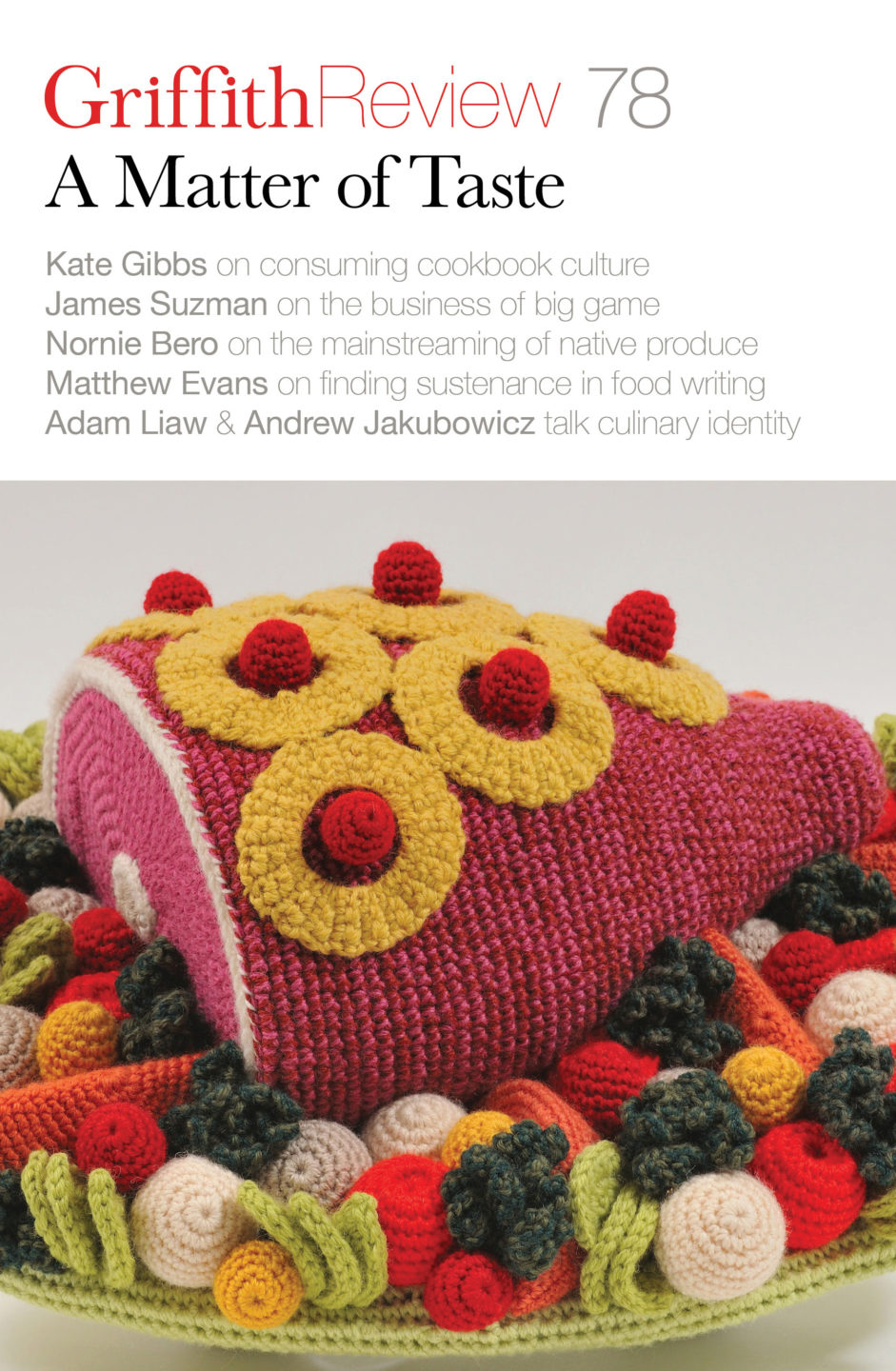Featured in

- Published 20221101
- ISBN: 978-1-922212-74-0
- Extent: 264pp
- Paperback (234 x 153mm), eBook


Already a subscriber? Sign in here
If you are an educator or student wishing to access content for study purposes please contact us at griffithreview@griffith.edu.au
Share article
More from author

Fire on the mountain
GR OnlineAnd on rainy nights, when cloud hangs low over Kaputar’s peak, the mountain hosts a slimy synchronised dance of sorts. Fat pink slugs, some longer than a human hand, slide out from the earth – sometimes just a few, sometimes in their hundreds. From deep in the damp – no one quite knows where – they glide up rock faces and tree trunks in shocking shades of bubblegum and flamingo, sashimi and blood plum...
More from this edition

The supper
Poetrywhere Sacrificer and Sacrificee, still fragrant with the Blood of Morning and Harvest, gather by twisted Beak and crooked Hand

A recipe for Rote Grütze
PoetryI imagine you as a young woman here in this foreign place trying to learn a language your children brought home from school.

Fallen apples
EssayFrom the twelfth century in Western Europe, the apple, scientific name malus, became the forerunner for the unidentified forbidden fruit from the Garden of Eden, probably because its symbolism was already well established in Norse and Greek mythology, and the wordplay was irresistible: malus derives from the Latin word malum, which meant both evil or wrongdoing and fruit plucked from a tree.